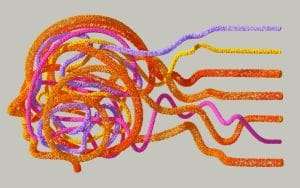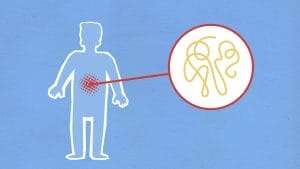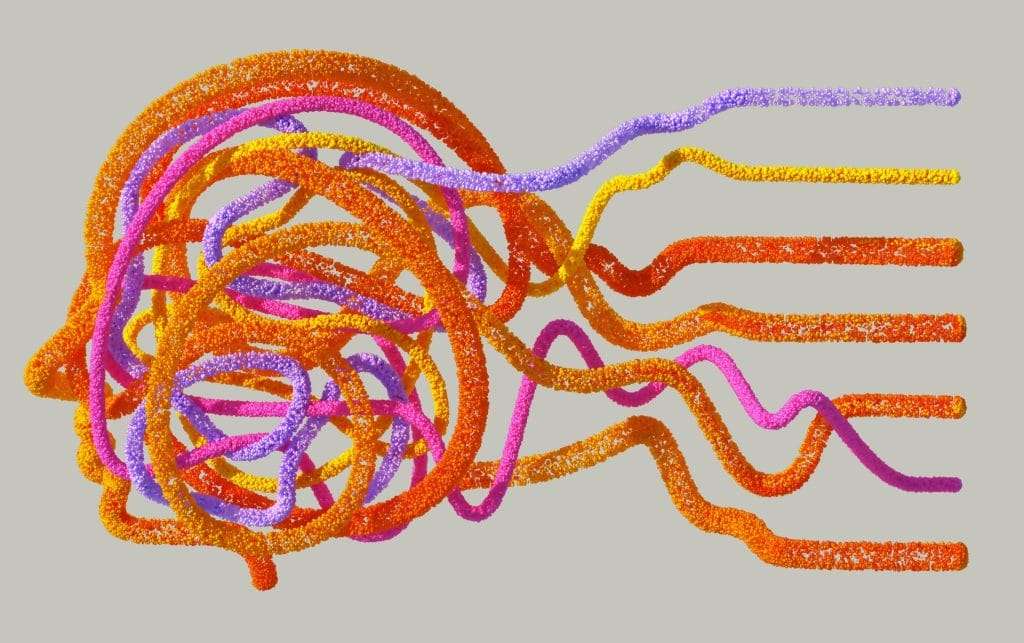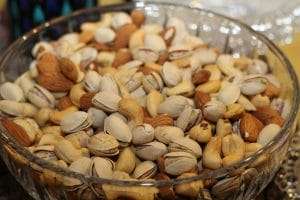Introduction
Have you ever felt like you’re thinking through a haze? Your thoughts seem sluggish, your memory isn’t quite working right, and focusing on even simple tasks feels unusually challenging? This common cognitive state has a name: brain fog. While not a medical diagnosis in itself, brain fog describes a constellation of symptoms that affect mental clarity, concentration, and cognitive function.
Brain fog can significantly impact daily life, making work more difficult, affecting personal relationships, and diminishing overall quality of life. The good news is that emerging research suggests certain nutritional approaches, including targeted vitamin and supplement strategies, may help combat these frustrating symptoms and restore mental clarity.

In this comprehensive guide, we’ll explore the causes of brain fog, identify key nutrients that support cognitive function, and discuss evidence-based supplement options that may help clear the mental haze. Whether you’re experiencing occasional cognitive hiccups or more persistent mental fatigue, understanding the nutritional foundations of brain health can provide valuable tools for reclaiming your cognitive edge. Many of these supplements not only help with brain fog but can also provide immune system support supplements benefits as well.
Understanding Brain Fog: Symptoms and Causes
Brain fog isn’t simply a bad day or momentary distraction. When people describe experiencing brain fog, they typically report a combination of symptoms including:
- Difficulty concentrating or focusing
- Memory problems or forgetfulness
- Mental fatigue
- Confusion or disorientation
- Trouble finding words or formulating thoughts
- Decreased mental clarity
- Slowed thinking or processing speed
These symptoms can range from mild to severe and may be temporary or persistent. What makes brain fog particularly challenging is that it stems from numerous potential causes, often working in combination. Some of the most common contributors include:
Nutritional Deficiencies
The brain is a metabolically demanding organ, requiring a consistent supply of various nutrients to function optimally. Deficiencies in certain vitamins, minerals, and other nutrients can directly impact cognitive function. For example, B-vitamin deficiencies are well-documented to affect neurological health and cognitive performance. A study published in the American Journal of Clinical Nutrition found that inadequate B-vitamin status was associated with poorer cognitive function in older adults (1). Similarly, calcium supplements for bone health play an indirect role in cognitive function, as calcium signaling is crucial for neuronal communication.
Inflammation
Chronic inflammation affects the entire body, including the brain. Inflammatory processes can disrupt normal brain function and contribute to cognitive symptoms like brain fog. Research published in JAMA Psychiatry demonstrated that peripheral inflammation is associated with changes in brain function that affect cognition (2). Nutrient-rich immune support supplements with anti-inflammatory properties can help address this root cause.
Hormonal Imbalances
Hormones play crucial roles in regulating brain function. Fluctuations or imbalances—whether due to thyroid dysfunction, menopause, chronic stress, or other conditions—can manifest as brain fog. A comprehensive review in Frontiers in Neuroendocrinology highlighted how estrogen fluctuations during menopause can impact cognitive function and contribute to brain fog symptoms (3). For women experiencing these issues, women’s energy-boosting supplements may help manage symptoms.
Sleep Disturbances
Quality sleep is essential for cognitive function and memory consolidation. Sleep disruptions can significantly impair mental clarity the following day. A 2018 study in SLEEP showed that even a single night of poor sleep could impact attention, memory, and executive function (4). Effective natural stress solutions can improve sleep quality and subsequently reduce brain fog.

Chronic Stress
Persistent stress triggers the release of cortisol, which at chronically elevated levels can impair cognitive function and contribute to brain fog. Research in Nature Reviews Neuroscience demonstrated that chronic stress can actually change brain structure and function in ways that affect cognition (5). Understanding the connection between vitamin deficiencies and stress can help address multiple contributing factors simultaneously.
Medical Conditions
Several medical conditions list brain fog among their symptoms, including chronic fatigue syndrome, fibromyalgia, autoimmune disorders, and post-viral syndromes. The increasingly recognized “long COVID” also frequently features cognitive symptoms. A 2021 study in The Lancet found that cognitive deficits were common among COVID-19 survivors, particularly those who had experienced more severe infections (6). Supporting recovery with daily immune health supplements may benefit these individuals.
Understanding these potential causes is crucial because effective treatment depends on addressing the underlying factors. While improving overall nutrition and considering targeted supplements can support brain health, persistent brain fog warrants a conversation with a healthcare provider to rule out serious medical conditions.
Glam Dust
Radiant Skin – Luscious Hair – Pristine Nails
Vitamin Shots
The ultimate brain and body supplements
Vitamin Sprinkles
The ultimate brain and body supplements
The Nutritional Foundation for Brain Health – Vitamins
Before diving into specific supplements, it’s important to understand that supplementation works best when built upon a foundation of good nutrition. The brain requires a diverse array of nutrients to function optimally, and many of these works synergistically rather than in isolation.

Essential Nutrients for Cognitive Function – Improve Memory
Omega-3 Fatty Acids
Omega-3 fatty acids, particularly docosahexaenoic acid (DHA), are critical structural components of brain cell membranes. They support neuronal communication and have anti-inflammatory properties that protect brain health. Research published in the Journal of Alzheimer’s Disease found that higher blood levels of omega-3s were associated with better cognitive function and larger brain volumes in older adults (7). For those following plant-based diets, best plant-based supplements containing algae-derived omega-3s can be excellent alternatives to fish oil.
B Vitamins
The B-vitamin complex plays crucial roles in energy metabolism, neurotransmitter synthesis, and myelin formation—all essential for cognitive function.
- B1 (Thiamine): Critical for glucose metabolism in the brain
- B6 (Pyridoxine): Needed for neurotransmitter synthesis
- B9 (Folate): Supports DNA synthesis and repair
- B12 (Cobalamin): Essential for nerve health and cognitive function

A two-year randomized controlled trial published in Proceedings of the National Academy of Sciences found that B-vitamin supplementation slowed brain atrophy in older adults with mild cognitive impairment (8). These vitamins are also considered essential vitamins for workouts as they help convert food into energy needed during exercise.
Antioxidants
Oxidative stress contributes to neuronal damage and cognitive decline. Antioxidants like vitamins C and E, as well as plant compounds like flavonoids, help neutralize free radicals and protect brain cells. Research in the Annals of Neurology demonstrated that higher intake of flavonoid-rich foods was associated with slower rates of cognitive decline (9). Many antioxidants also serve as skin vitamins for anti-aging by protecting skin cells from oxidative damage.
Minerals
Several minerals play key roles in brain health:
- Magnesium: Supports neurotransmitter function and synaptic plasticity
- Zinc: Essential for neurotransmission and neuronal development
- Iron: Required for oxygen transport to the brain and neurotransmitter synthesis (women’s iron-deficiency supplements are particularly important for menstruating women)
- Selenium: Protects against oxidative damage in brain tissue
- Calcium: Not only important as calcium bone density supplements but also vital for neurotransmission
A study in the Journal of Alzheimer’s Disease found that magnesium supplementation improved cognitive function in adults with mild cognitive impairment (10).
The Impact of Overall Diet – Vitamins and supplements
While individual nutrients are important, the overall dietary pattern also significantly impacts brain health. Mediterranean and MIND (Mediterranean-DASH Intervention for Neurodegenerative Delay) diets have shown promise in supporting cognitive function and reducing risk of cognitive decline. These diets emphasize:
- Abundant vegetables and fruits
- Whole grains
- Healthy fats from sources like olive oil and nuts
- Moderate consumption of fish
- Limited processed foods and added sugars
A landmark study published in Alzheimer’s & Dementia found that adherence to the MIND diet was associated with slower cognitive decline over time (11). For those following plant-based diets, vegan nutrition for men and women can be optimized to include brain-supporting nutrients from plant sources.
This nutritional foundation provides the brain with the resources it needs to function optimally. When this foundation is solid, targeted supplementation can address specific deficiencies or provide therapeutic amounts of compounds that support brain health.
The Science Behind Green Tea and Other Brain Supplement Options for Enhanced Cognitive Function
One study published in the Journal of Nutrition found that green tea consumption may benefit memory and brain performance through its unique combination of L-theanine and caffeine, where caffeine is a natural stimulant that sharpens focus while L-theanine promotes relaxation – making this beverage an effective natural stimulant for healthy people seeking cognitive enhancement. Various nootropic supplements to enhance focus and attention have gained popularity among healthy adults who desire to improve brain function without prescription medications.
Brain health supplements containing B vitamins play a crucial role in brain chemistry and energy production, with vitamin B supplements often included in brain health supplement for memory products. A clinical study showed that adults who took the original focus factor original for six weeks improved their memory and thinking skills significantly compared to those taking a placebo, suggesting certain supplements might help support healthy brain function particularly in healthy older adults. Many of these supplements also function as long-lasting energy boosters by supporting cellular energy production.
Focus pills and brain booster supplements have been shown to target working memory, attention and focus, with some evidence that fish oil supplements may protect the brain from oxidative damage while supporting memory and learning. Among the top 10 nootropic supplements marketed as cognitive enhancers, those containing proper nutrition for the brain with essential vitamins and minerals tend to show better results for memory and concentration. Supplements help maintain brain health through multiple mechanisms, some enhance blood flow to the brain, others support neurotransmitter production in the part of the brain associated with learning and memory. Many of these also serve as workout essentials supplements for those looking to optimize both physical and mental performance.
Researchers at Oxford University found that resveratrol supplements could potentially help improve your memory and protect the brain as you age by promoting better memory function and general brain health. While supplements can improve cognitive functions such as memory in some cases, experts recommend combining them with brain games and other lifestyle interventions to truly enhance brain performance and help brain health over time. Herbal supplements with ingredients that help support healthy brain function continue to be researched, with preliminary evidence suggesting some may boost memory and focus when used consistently over time, though adults who took the original formulations often reported more substantial benefits than those using newer alternatives. Many of these supplements also provide nutritional supplements for eyesight benefits due to their antioxidant properties.
Key Supplements for Mental Clarity – Brain booster
While a healthy diet forms the foundation of brain health, certain supplements have shown promise in addressing brain fog and supporting cognitive function. Here’s an evidence-based look at the most promising options:
B-Complex Vitamins
B vitamins play crucial roles in brain function, including energy production, neurotransmitter synthesis, and maintenance of myelin (the protective sheath around nerves). Research suggests they may be particularly important for preventing cognitive decline and maintaining mental clarity.
A large study published in the International Journal of Geriatric Psychiatry found that supplementation with B vitamins (B6, B12, and folate) improved cognitive performance in older adults, particularly those with higher homocysteine levels at baseline (12). Homocysteine is an amino acid that, when elevated, is associated with cognitive impairment and increased risk of dementia. These vitamins also serve as exercise energy boosters by supporting metabolic function.
Recommended forms:
- Methylcobalamin (B12)
- Methylfolate (active form of folate)
- Pyridoxal-5-phosphate (active form of B6)
These active forms may be better utilized by the body, especially in people with genetic variations affecting B vitamin metabolism. For vegans, vegan liquid multivitamins containing these active forms can ensure adequate intake.
Omega-3 Fatty Acids
As mentioned earlier, omega-3 fatty acids—particularly DHA—are critical components of brain cell membranes. They support neuroplasticity (the brain’s ability to form new neural connections) and have anti-inflammatory properties that protect brain health.
A meta-analysis published in PLoS ONE, examining data from 21 studies with a total of 181,580 participants, found that fish consumption and dietary intake of omega-3 fatty acids were associated with reduced risk of cognitive decline (13). Omega-3s also serve as vitamin support for immunity by resolving inflammation throughout the body.
Recommended forms:
- Fish oil supplements standardized for EPA and DHA content
- Algae-derived omega-3s for vegetarians/vegans (non-GMO plant-based liquid vitamins often include these)
For addressing brain fog, look for supplements with a higher ratio of DHA, as this fatty acid is particularly important for brain structure and function.
Vitamin D
Often called the “sunshine vitamin,” vitamin D functions more like a hormone in the body and affects numerous brain processes. Vitamin D receptors are present throughout the brain, and research suggests that deficiency may contribute to cognitive issues.
A study published in JAMA Neurology found that vitamin D deficiency was associated with substantially increased risk of cognitive decline (14). This is particularly concerning given that an estimated 40% of U.S. adults are deficient in vitamin D. Vitamin D is also essential for calcium bone density supplements to work effectively, as it aids calcium absorption.
Recommended form:
- Vitamin D3 (cholecalciferol), which is more effective at raising blood levels than D2
Magnesium
Magnesium plays essential roles in neurotransmitter release, synaptic plasticity, and the regulation of the N-methyl-D-aspartate (NMDA) receptor, which is involved in learning and memory.
Research published in The Journal of Neuroscience found that increasing brain magnesium using a specific form called magnesium L-threonate enhanced learning abilities, working memory, and short- and long-term memory in rats (15). Human studies have shown similar promise. Magnesium is also valuable for athletes seeking effective stamina support as it helps prevent muscle cramps during extended exercise.
Recommended forms:
- Magnesium L-threonate, which appears to cross the blood-brain barrier more effectively
- Magnesium glycinate, which has good bioavailability and fewer digestive side effects
Adaptogens
Adaptogens are natural substances that help the body adapt to stress and restore normal physiological functioning. Several adaptogenic herbs have shown promise for improving cognitive function and reducing brain fog:
Ashwagandha
This traditional Ayurvedic herb has been shown to reduce cortisol levels and improve stress resistance. A randomized, double-blind, placebo-controlled trial published in the Journal of Dietary Supplements found that ashwagandha supplementation significantly improved reaction time and task performance compared to placebo (16). Ashwagandha is also one of the most popular safe natural stress relief remedies available.
Rhodiola Rosea
Known for its anti-fatigue properties, Rhodiola has been studied for its effects on mental performance during stressful and fatiguing conditions. A systematic review published in Phytomedicine concluded that Rhodiola may have anti-fatigue effects that increase mental performance, particularly the ability to concentrate (17). For athletes, Rhodiola is considered one of the best supplements for improved stamina.
Bacopa Monnieri
With a long history of use in Ayurvedic medicine for enhancing memory and cognitive function, Bacopa has impressive research behind it. A meta-analysis published in the Journal of Ethnopharmacology found that Bacopa significantly improved cognition, particularly speed of attention (18). Bacopa is gaining recognition as an important component in premium stamina-enhancing vitamins for both mental and physical endurance.
Citicoline (CDP-Choline)
Citicoline supports the synthesis of phosphatidylcholine, a major component of brain cell membranes. It also increases levels of neurotransmitters, including acetylcholine, which is crucial for memory and learning.
A review published in Brain Sciences concluded that citicoline supplementation improves attention and mental performance in healthy adults and may be even more effective in individuals with cognitive deficits (19). Athletes often include citicoline in their fitness nutrient supplements regimen for cognitive performance during training.
Lion’s Mane Mushroom
This unique medicinal mushroom contains compounds that may stimulate the production of nerve growth factor (NGF), which supports the growth and maintenance of neurons. Research published in Phytotherapy Research found that Lion’s Mane supplementation improved cognitive function in older adults with mild cognitive impairment (20). Lion’s Mane is also gaining popularity as a component in immunity boosters for sale due to its immune-modulating properties.
Coenzyme Q10 (CoQ10)
CoQ10 is an antioxidant that plays a crucial role in cellular energy production. The brain, as a high-energy organ, is particularly dependent on efficient mitochondrial function.
Research published in Nutritional Neuroscience found that CoQ10 supplementation improved markers of oxidative stress and mitochondrial function in the brain, potentially supporting cognitive health (21). CoQ10 is also essential for long-lasting endurance support as it powers cellular energy production throughout the body.
Personalized Approaches to Supplementation
While the supplements discussed above have research supporting their cognitive benefits, it’s important to recognize that brain fog can have many different causes. The most effective supplement regimen will address your specific underlying factors.
Identifying Your Brain Fog Triggers – Reduce brain fog
Consider keeping a journal to track when brain fog occurs and potential triggers. Pay attention to:
- Sleep quality and quantity: Did you sleep poorly the night before experiencing brain fog?
- Diet patterns: Do certain foods seem to worsen or improve your symptoms?
- Stress levels: Is your brain fog worse during high-stress periods?
- Hormonal fluctuations: For women, is there a pattern related to menstrual cycles?
- Environmental factors: Are there specific environments (e.g., poor air quality) that seem to trigger symptoms?
This information can help you identify patterns and develop a more targeted approach to addressing your brain fog.
Testing for Deficiencies – memory loss
Before starting any supplement regimen, consider working with a healthcare provider to test for nutritional deficiencies. Common tests that may be relevant include:
- Vitamin D levels
- B12 and folate status
- Iron panel (including ferritin)
- Magnesium levels
- Inflammatory markers
- Thyroid function
- Hormone levels
These tests can identify specific deficiencies that may be contributing to your symptoms and help guide supplementation.
Starting a Supplement Regimen
When beginning supplements for brain fog, follow these principles:
- Start one at a time: This allows you to monitor effects and identify any adverse reactions.
- Begin with foundational nutrients: Start with a high-quality multivitamin and omega-3 supplement before adding more targeted supplements.
- Give it time: Many supplements, particularly herbs and adaptogens, may take several weeks to show benefits.
- Use quality products: Choose supplements from reputable manufacturers that undergo third-party testing.
- Consider professional guidance: Work with a healthcare provider knowledgeable about supplements, especially if you have existing health conditions or take medications.
Glam Dust
Radiant Skin – Luscious Hair – Pristine Nails
Vitamin Shots
The ultimate brain and body supplements
Vitamin Sprinkles
The ultimate brain and body supplements
Personalized Approaches to Supplementation
While the supplements discussed above have research supporting their cognitive benefits, it’s important to recognize that brain fog can have many different causes. The most effective supplement regimen will address your specific underlying factors.

Identifying Your Brain Fog Triggers – Reduce brain fog
Consider keeping a journal to track when brain fog occurs and potential triggers. Pay attention to:
- Sleep quality and quantity: Did you sleep poorly the night before experiencing brain fog?
- Diet patterns: Do certain foods seem to worsen or improve your symptoms?
- Stress levels: Is your brain fog worse during high-stress periods? Consider natural stress relief options to address this trigger.
- Hormonal fluctuations: For women, is there a pattern related to menstrual cycles? Women’s energy-boosting supplements might help during specific cycle phases.
- Environmental factors: Are there specific environments (e.g., poor air quality) that seem to trigger symptoms?
This information can help you identify patterns and develop a more targeted approach to addressing your brain fog.
Testing for Deficiencies – memory loss
Before starting any supplement regimen, consider working with a healthcare provider to test for nutritional deficiencies. Common tests that may be relevant include:
- Vitamin D levels
- B12 and folate status
- Iron panel (including ferritin) – especially important for those considering women’s iron-deficiency supplements
- Magnesium levels
- Inflammatory markers
- Thyroid function
- Hormone levels
These tests can identify specific deficiencies that may be contributing to your symptoms and help guide supplementation.
Starting a Supplement Regimen
When beginning supplements for brain fog, follow these principles:
- Start one at a time: This allows you to monitor effects and identify any adverse reactions.
- Begin with foundational nutrients: Start with a high-quality multivitamin and omega-3 supplement before adding more targeted supplements. For those on plant-based diets, plant-based multivitamin options can provide this foundation.
- Give it time: Many supplements, particularly herbs and adaptogens, may take several weeks to show benefits.
- Use quality products: Choose supplements from reputable manufacturers that undergo third-party testing.
- Consider professional guidance: Work with a healthcare provider knowledgeable about supplements, especially if you have existing health conditions or take medications.
Lifestyle Factors That Enhance Supplement Effectiveness
While supplements can be powerful tools for addressing brain fog, their effectiveness is significantly enhanced when combined with lifestyle practices that support brain health.
Physical Exercise
Regular physical activity increases blood flow to the brain, promotes the release of growth factors that support neuronal health, and reduces inflammation. A study published in British Journal of Sports Medicine found that even a single bout of moderate exercise temporarily improved cognitive performance and attention (22). For those looking to optimize workout performance, vitamins for endurance training can complement your exercise routine.

Aim for at least 150 minutes of moderate-intensity exercise per week, including both aerobic activities and strength training. Consider endurance-boosting vitamins for athletes to support longer and more effective workouts.
Quality Sleep
Sleep is when the brain consolidates memories and clears metabolic waste through the glymphatic system. Chronic sleep deprivation is strongly linked to cognitive impairment and brain fog.
Prioritize sleep hygiene by:
- Maintaining a consistent sleep schedule
- Creating a dark, quiet, cool sleeping environment
- Limiting screen time before bed
- Avoiding caffeine and alcohol close to bedtime
Skin and Nail Health
Interestingly, many nutrients that support brain health also benefit your appearance. Skin vitamins for glowing complexion often contain antioxidants that protect both brain and skin cells from oxidative damage. Similarly, following diet tips for stronger nails can ensure you’re getting nutrients like biotin and silica that support both nail strength and neural health.
Stress Management
Chronic stress elevates cortisol levels, which can damage the hippocampus (a brain region crucial for memory) and impair cognitive function. Effective stress management techniques include:
- Mindfulness meditation
- Deep breathing exercises
- Yoga or tai chi
- Time in nature
- Social connection
- Using safe natural stress relief remedies when appropriate

Research published in Psychoneuroendocrinology found that regular mindfulness practice was associated with lower cortisol levels and improved cognitive performance under stress (23).
Cognitive Training
Engaging in mentally stimulating activities helps build cognitive reserve and maintain mental sharpness. These activities might include:
- Learning a new language or instrument
- Challenging puzzles or games
- Reading complex material
- Taking courses in unfamiliar subjects
A study published in PLoS ONE found that older adults who regularly engaged in cognitively stimulating activities had a reduced risk of cognitive decline (24).
Special Considerations for Specific Populations
Vegan and Vegetarian Needs
Those following plant-based diets should pay special attention to nutrients that may be harder to obtain from plant sources alone. Vegan nutrition for men and women should include:
- Vitamin B12 (supplementation is essential)
- Plant-based iron supplements (non-heme iron is less bioavailable than animal-sourced iron)
- Omega-3 fatty acids from algae sources
- Zinc from legumes, nuts, and seeds
Non-GMO plant-based liquid vitamins can be an excellent way to ensure adequate intake of these nutrients.
Anti-Aging Considerations
Those concerned with cognitive aging may want to consider supplements that also provide anti-aging benefits for the skin. Skin vitamins for youthful appearance like vitamin C, E, and coenzyme Q10 protect both brain and skin cells from oxidative damage.
Athletic Performance
Active individuals can benefit from supplements that support both cognitive and physical performance. Effective stamina support supplements like CoQ10, B vitamins, and adaptogens can help maintain energy levels during workouts while supporting mental clarity.
Potential Interactions and Precautions
While supplements can be valuable tools for addressing brain fog, they’re not without risks. Here are important considerations before starting any supplement regimen:
Medication Interactions
Many supplements can interact with prescription medications. Some notable examples include:
- St. John’s Wort: Interacts with numerous medications including antidepressants, birth control pills, blood thinners, and heart medications
- Ginkgo Biloba: May increase bleeding risk when combined with blood thinners
- B vitamins: High-dose niacin can interact with statins and diabetes medications
- Magnesium: May interfere with antibiotic absorption and could interact with blood pressure medications
Always consult with a healthcare provider before starting supplements if you take prescription medications.
Timing Considerations

Some supplements are better absorbed at specific times:
- B vitamins: Generally best taken in the morning, as they can boost energy
- Magnesium: Often recommended in the evening, as it can promote relaxation
- Iron: Absorption is improved when taken on an empty stomach and with vitamin C
- Fat-soluble vitamins (A, D, E, K): Best absorbed when taken with meals containing healthy fats
Quality and Purity Concerns
The supplement industry is less regulated than pharmaceuticals, making quality control important:
- Look for supplements certified by third-party organizations like NSF International, USP, or ConsumerLab
- Research the manufacturer’s reputation and quality control procedures
- Be wary of unrealistic claims or “proprietary blends” that don’t disclose specific amounts of ingredients
Special Populations
Certain groups need to take special precautions with supplements:
- Pregnant or breastfeeding women: Many supplements haven’t been tested for safety during pregnancy and lactation
- Older adults: May have altered metabolism and increased sensitivity to supplements
- People with chronic conditions: May have specific contraindications or need adjusted dosages
- Those scheduled for surgery: Many supplements should be discontinued 2-3 weeks before surgical procedures
Glam Dust
Radiant Skin – Luscious Hair – Pristine Nails
Vitamin Shots
The ultimate brain and body supplements
Vitamin Sprinkles
The ultimate brain and body supplements
When to Seek Professional Help
While supplements can help address mild to moderate brain fog, persistent cognitive symptoms sometimes indicate underlying medical conditions that require professional attention. Consider consulting a healthcare provider if:
- Brain fog is severe or worsening
- Cognitive symptoms came on suddenly
- You have additional symptoms like severe headaches, vision changes, or coordination problems
- Brain fog significantly interferes with daily functioning
- You’ve tried basic interventions with no improvement
A healthcare provider can help rule out conditions like thyroid disorders, sleep apnea, autoimmune diseases, or neurological conditions that might be responsible for your symptoms.

Conclusion
Brain fog, that frustrating state of mental cloudiness and decreased cognitive function, affects millions of people. While its causes are varied and often multifactorial, nutritional approaches including targeted supplementation offer promising avenues for relief.
The research suggests that addressing nutritional deficiencies, supporting mitochondrial function, reducing inflammation, and enhancing neuroplasticity through appropriate supplementation can help clear the mental haze and restore cognitive clarity. Particularly promising options include B vitamins, omega-3 fatty acids, vitamin D, magnesium, and adaptogenic herbs like bacopa monnieri and rhodiola rosea.
However, supplements work best when combined with brain-healthy lifestyle practices: regular physical activity, quality sleep, stress management, and cognitive stimulation. This holistic approach addresses the multiple factors that contribute to optimal brain function.
Remember that persistent or severe cognitive symptoms warrant professional medical attention to rule out underlying conditions. Working with healthcare providers knowledgeable about both conventional medicine and nutritional approaches can help you develop a personalized plan that addresses your specific needs.
By understanding the science behind brain fog and taking a systematic approach to addressing its causes, you can support your brain health and reclaim your mental clarity.
Brain fog often stems from multiple factors, including nutrient deficiencies and stress. To address the root causes effectively, consider exploring our comprehensive guide on stress relief vitamins that can improve mood and reduce anxiety. For seniors experiencing cognitive decline, our article on daily multivitamins for memory improvement provides age-specific recommendations. If you’re looking for practical techniques to enhance focus, discover 10 effective ways to improve concentration. Additionally, understand how memory enhancement techniques from Mayo Clinic can complement your supplement routine
References
Smith AD, Smith SM, de Jager CA, et al. Homocysteine-lowering by B vitamins slows the rate of accelerated brain atrophy in mild cognitive impairment: a randomized controlled trial. PLoS One. 2010;5(9):e12244.
Kappelmann N, Lewis G, Dantzer R, et al. Association of Peripheral Inflammation With Cognitive Change: A Systematic Review and Meta-analysis. JAMA Psychiatry. 2021;78(12):1294-1304.
Rettberg JR, Yao J, Brinton RD. Estrogen: A master regulator of bioenergetic systems in the brain and body. Front Neuroendocrinol. 2014;35(1):8-30.
Cousins JN, Fernández G. The impact of sleep deprivation on declarative memory. Prog Brain Res. 2019;246:27-53.
McEwen BS, Nasca C, Gray JD. Stress Effects on Neuronal Structure: Hippocampus, Amygdala, and Prefrontal Cortex. Neuropsychopharmacology. 2016;41(1):3-23.
Hampshire A, Trender W, Chamberlain SR, et al. Cognitive deficits in people who have recovered from COVID-19. EClinicalMedicine. 2021;39:101044.
Zamroziewicz MK, Paul EJ, Zwilling CE, et al. Determinants of fluid intelligence in healthy aging: Omega-3 polyunsaturated fatty acid status and frontoparietal cortex structure. Nutr Neurosci. 2018;21(8):570-579.
Douaud G, Refsum H, de Jager CA, et al. Preventing Alzheimer’s disease-related gray matter atrophy by B-vitamin treatment. Proc Natl Acad Sci USA. 2013;110(23):9523-9528.
Devore EE, Kang JH, Breteler MM, Grodstein F. Dietary intakes of berries and flavonoids in relation to cognitive decline. Ann Neurol. 2012;72(1):135-143.
Liu G, Weinger JG, Lu ZL, et al. Efficacy and Safety of MMFS-01, a Synapse Density Enhancer, for Treating Cognitive Impairment in Older Adults: A Randomized, Double-Blind, Placebo-Controlled Trial. J Alzheimers Dis. 2016;49(4):971-990.
Morris MC, Tangney CC, Wang Y, et al. MIND diet associated with reduced incidence of Alzheimer’s disease. Alzheimers Dement. 2015;11(9):1007-1014.
Durga J, van Boxtel MP, Schouten EG, et al. Effect of 3-year folic acid supplementation on cognitive function in older adults in the FACIT trial: a randomised, double blind, controlled trial. Lancet. 2007;369(9557):208-216.
Zhang Y, Chen J, Qiu J, Li Y, Wang J, Jiao J. Intakes of fish and polyunsaturated fatty acids and mild-to-severe cognitive impairment risks: a dose-response meta-analysis of 21 cohort studies. Am J Clin Nutr. 2016;103(2):330-340.
Miller JW, Harvey DJ, Beckett LA, et al. Vitamin D Status and Rates of Cognitive Decline in a Multiethnic Cohort of Older Adults. JAMA Neurol. 2015;72(11):1295-1303.
Slutsky I, Abumaria N, Wu LJ, et al. Enhancement of learning and memory by elevating brain magnesium. Neuron. 2010;65(2):165-177.
Pingali U, Pilli R, Fatima N. Effect of standardized aqueous extract of Withania somnifera on tests of cognitive and psychomotor performance in healthy human participants. Pharmacognosy Res. 2014;6(1):12-18.
Hung SK, Perry R, Ernst E. The effectiveness and efficacy of Rhodiola rosea L.: a systematic review of randomized clinical trials. Phytomedicine. 2011;18(4):235-244.
Pase MP, Kean J, Sarris J, Neale C, Scholey AB, Stough C. The cognitive-enhancing effects of Bacopa monnieri: a systematic review of randomized, controlled human clinical trials. J Altern Complement Med. 2012;18(7):647-652.
Secades JJ, Lorenzo JL. Citicoline: pharmacological and clinical review, 2006 update. Methods Find Exp Clin Pharmacol. 2006;28 Suppl B:1-56.
Mori K, Inatomi S, Ouchi K, Azumi Y, Tuchida T. Improving effects of the mushroom Yamabushitake (Hericium erinaceus) on mild cognitive impairment: a double-blind placebo-controlled clinical trial. Phytother Res. 2009;23(3):367-372.
Young AJ, Johnson S, Steffens DC, Doraiswamy PM. Coenzyme Q10: a review of its promise as a neuroprotectant. CNS Spectr. 2007;12(1):62-68.
Chang YK, Labban JD, Gapin JI, Etnier JL. The effects of acute exercise on cognitive performance: a meta-analysis. Brain Res. 2012;1453:87-101.
Creswell JD, Lindsay EK, Villalba DK, Chin B. Mindfulness training and physical health: mechanisms and outcomes. Psychosom Med. 2019;81(3):224-232.
Lachman ME, Agrigoroaei S, Murphy C, Tun PA. Frequent cognitive activity compensates for education differences in episodic memory. Am J Geriatr Psychiatry. 2010;18(1):4-10.




.png)
